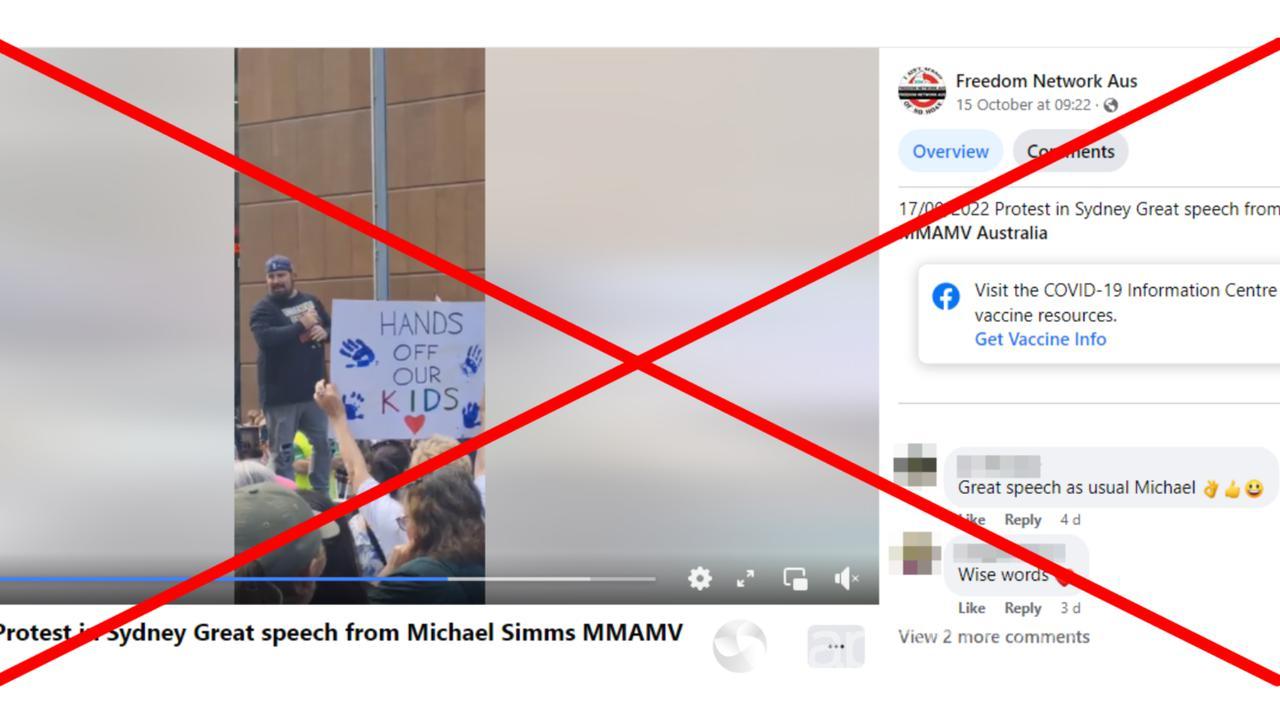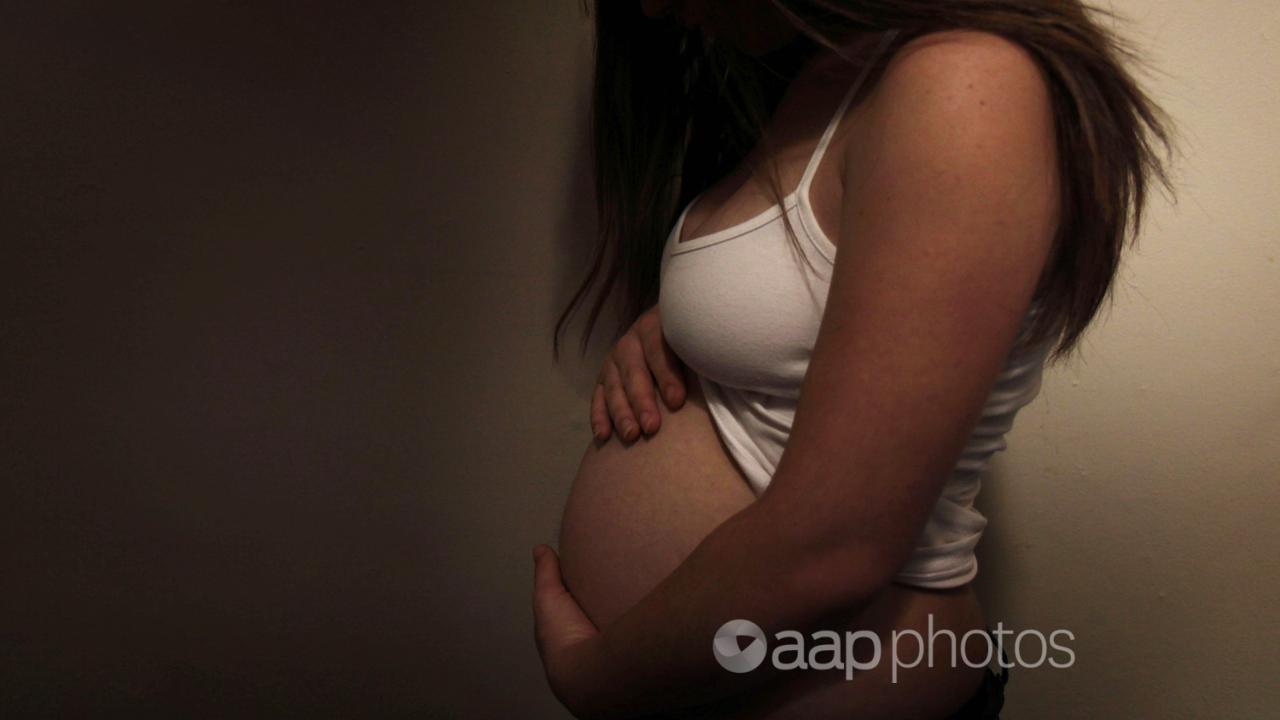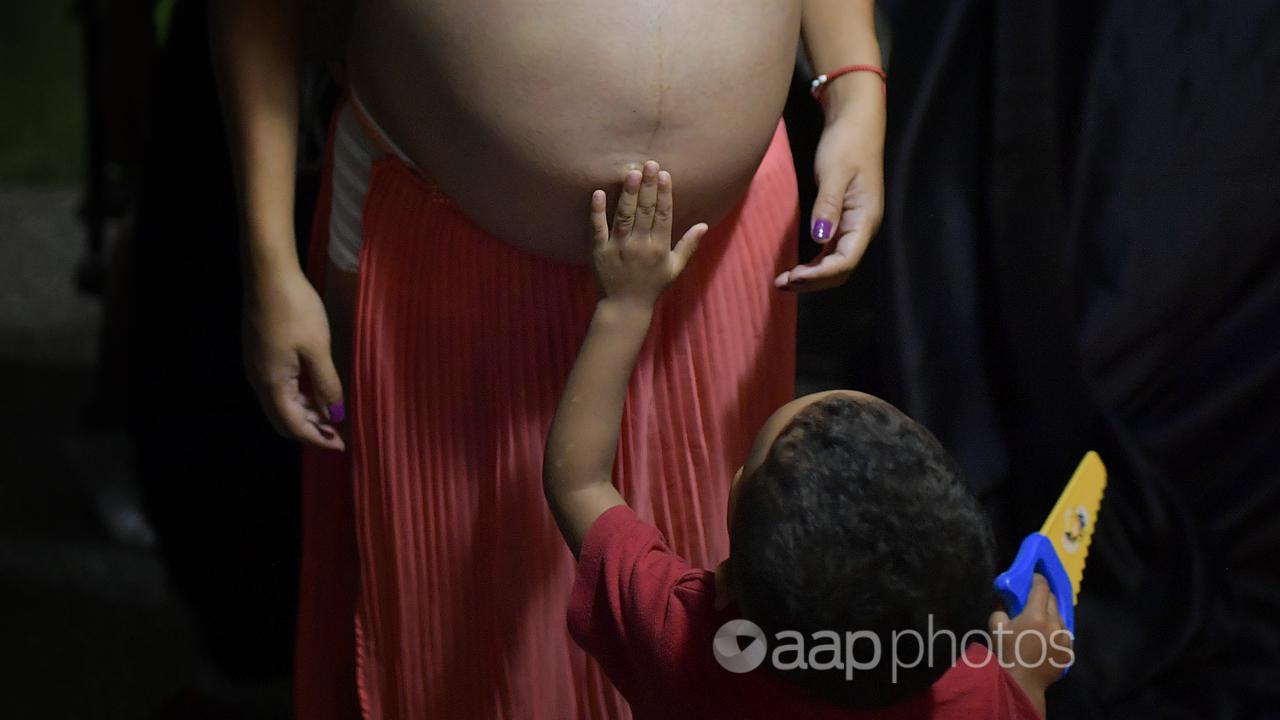Anti-vaccine protesters in Australia have been told England has banned COVID-19 vaccinations for pregnant women and children under five.
The claim is false. The UK government advises expectant mothers to get the jab, while children under five have never been eligible for the vaccines.
The claim was made in Sydney on September 17, during a rally held as part of a global anti-vaccine protest.
In a Facebook video (screenshot here) posted on October 15, a speaker tells the crowd: “England has banned the vaccine for pregnant women and children under five but we’re still giving it here in Australia,” (video mark 40sec).

However, official UK government advice shows this is not true and medical experts have told AAP FactCheck the claim is false.
“The statement is wrong,” said Aris Papageorghiou, professor of fetal medicine at the University of Oxford, who co-authored a 2021 study which explored the impacts of COVID-19 in pregnancy.
“In the UK, all adults including pregnant women are urged to be vaccinated; this includes the COVID-19 booster vaccine three months after their second dose,” Professor Papageorghiou said in an email.
UK children aged under five are not eligible for COVID-19 vaccination. It has not been banned.
“Vaccination for COVID-19 is not offered for children under 5 in the UK. It never has been,” a UK Health Security Agency spokesperson told AAP FactCheck in an email.
The United States is among only a few countries which offer COVID vaccines for all children under five. In Australia, it’s only recommended for children aged six months to five years with severe immunocompromise, disability and those with complex and/or multiple health conditions which increase the risk of severe COVID-19.

Prof Papageorghiou’s study looked at 2130 pregnant women in 18 countries. It found mothers and newborns faced a dramatically higher risk of severe medical complications if the mothers were diagnosed with COVID-19.
Official advice from the UK National Health Service (NHS) and the Royal College of Obstetricians and Gynaecologists (RCOG) confirms the vaccine guidance.
“Covid vaccines are strongly recommended in pregnancy,” the RCOG states.
Prof Papageorghiou said there were “clear recommendations from the RCOG and NHS”.
There have been concerns over the UK’s move to roll back widespread vaccination efforts for healthy children aged five to 11, but this is also not a ban, despite online claims which other fact-checking organisations have debunked, as seen here and here.
Viral posts claiming it’s not safe for pregnant UK women to be vaccinated have been circulating for some time. Many involve a misreading of a 2020 regulatory report and claims which have also been debunked.
AAP FactCheck has previously debunked other claims about children and vaccines (see here and here), along with ones about the pregnancy and vaccines (see here and here).
The Verdict
The claim England has banned COVID-19 vaccines for pregnant women and children aged under five is false. Advice from the UK National Health Service and Royal College of Obstetricians and Gynaecologists is pregnant women should get COVID-19 vaccinations.
UK children aged under five have not been offered vaccines, but the United Kingdom has not banned vaccination for any groups.
False – The claim is inaccurate.
* AAP FactCheck is an accredited member of the International Fact-Checking Network. To keep up with our latest fact checks, follow us on Facebook, Twitter and Instagram.
All information, text and images included on the AAP Websites is for personal use only and may not be re-written, copied, re-sold or re-distributed, framed, linked, shared onto social media or otherwise used whether for compensation of any kind or not, unless you have the prior written permission of AAP. For more information, please refer to our standard terms and conditions.


















